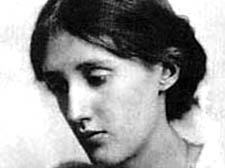|
|
 |
| |

Virginia had to ‘make do’ with just two servants |
Life below stairs with those Bloomsbury groupies
MRS WOOLF AND THE SERVANTS. By Alison Light
£20
FAMOUSLY, “No man is a hero to his valet”. This, said the philosopher Hegel, is not because the hero is not a hero but because the valet is a valet. How these perceptions applied to women, both mistresses and servants, and to Bloomsbury is the subject of Mrs Woolf and the Servants.
The novelist Virginia Woolf was brought up in a large house belonging to her eminent father, Sir Leslie Stephen, at 22 Hyde Park Gate in Kensington. There Virginia’s mother Julia exercised a natural and unquestioned command over seven live-in servants. After her marriage to Leonard Woolf in 1912, Virginia had to make do with two live-in servants, a number that dwindled over the years to none.
The Woolfs’ experience echoed that of most other domestic employers. At a time when other jobs, and careers, for women were becoming available, would-be employers found live-in servants ever harder to get, a process sharply accelerated by the First World War.
After an early experiment in which she managed to bake her wedding ring into a suet pudding in 1914, Virginia even learnt to cook; and part of her last morning before her suicide in March 1941 was spent with Louie Everest, her long-time housekeeper, dusting.
The main body of the book is about Virginia’s relationships with her servants, her perception of them, and their reaction to her. If at first sight this seems an odd and limited subject, Alison Light proves it to be a rewarding one of considerable breadth.
She has traced the backgrounds and characters of all the main servants in the Stephen, Woolf and Bell households. She concentrates on her cook, Nellie Boxall, whose relationship with Virginia was literally a close one over the 18 years before her mistress sacked her in 1934.
Servants in general, and Nellie in particular, are much commented on by Woolf in her letters and diaries, often revealingly. Inevitably, we know far more about what she thought of them than about what they thought of her. In contrast, the servants in her novels are largely stereotypes.
Mrs Woolf and the Servants manages the considerable feat of seeing Virginia Woolf and the Bloomsbury group from a fresh angle. In a perceptive and well-written book, Alison Light also provides a great deal of intelligent comment on domestic service and the English class system in general.
She wishes to emancipate the servants from anonymity, in both life and literature, by demonstrating their individual humanity. In her test case of Bloomsbury she partially succeeds, although the Woolfs, by no means bad employers, were far too idiosyncratic to be representative ones.
MARTIN SHEPPARD
|
 |
|
 |
 |
|
 |
|



